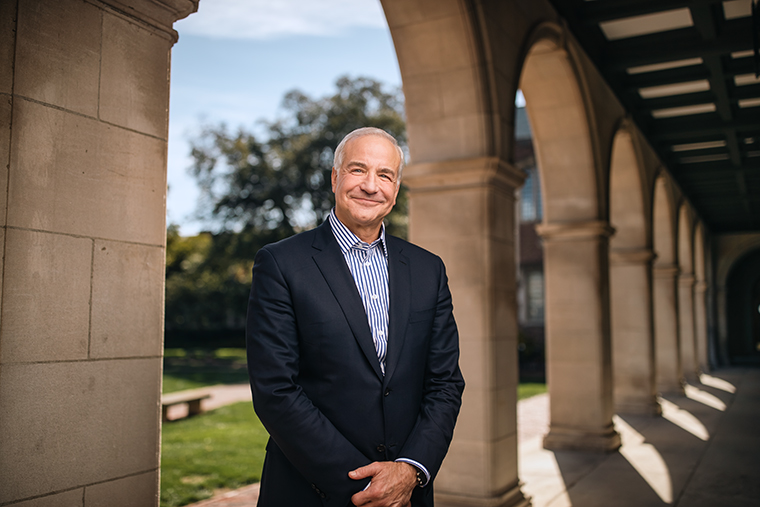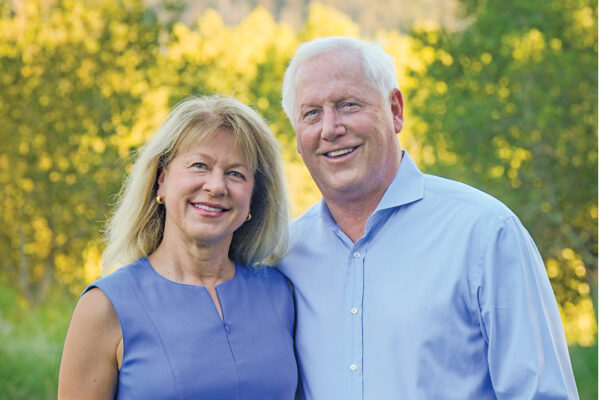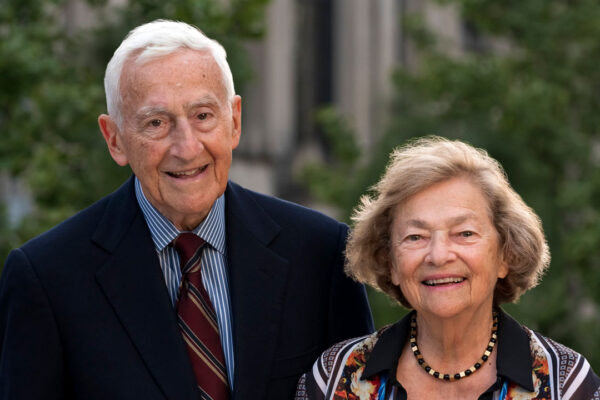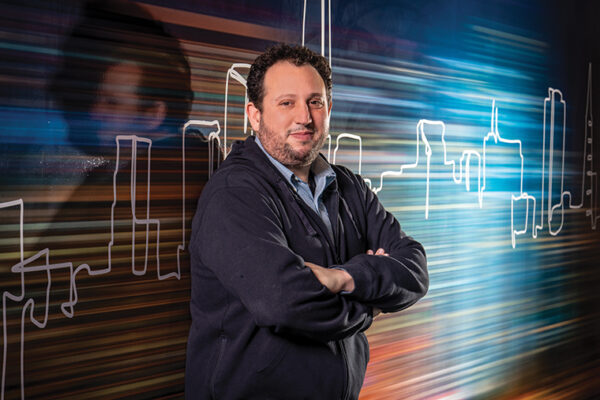Eric Upin, AB ’83, is an endowment guy. “I’m a strong believer in endowments, which are a critical and strategic component of any major research university,” Upin says of the pooled investment funds that generate ongoing income for academic institutions like WashU. “Endowments create financial stability and are a powerful tool for recruiting high-caliber faculty and students.”
Upin, who earned a bachelor’s degree in economics from Washington University and an MBA from Harvard Business School, began his career on Wall Street in investment banking. After 15 years, he shifted to endowment management, first overseeing Stanford University’s endowment. In 2017, he returned to WashU to fill the role of interim chief investment officer for the university’s endowment. Today, he is co-founder and managing partner of Point Olema Capital Partners, a San Francisco–based multifamily investment office.
As board chairman of the Washington University Investment Management Company, Upin continues to advise WashU’s investment portfolio strategy. He also has served on the Board of Trustees and the San Francisco Regional Cabinet, strengthening connections to WashU among alumni, parents and friends in the Bay Area, where he lives. His son, Thomas, is a sophomore in the McKelvey School of Engineering, and Upin and his wife, Natalie Stern, joined the Parents Council in 2021. They are longstanding supporters of the university and endowed an undergraduate scholarship in honor of Upin’s parents.
Most recently, Upin accepted a role as co-chair of Make Way: Our Student Initiative. This fundraising effort aims to increase financial resources for undergraduate scholarships, graduate scholarships and fellowships, and a best-in-class student experience.
How did you become an endowment guy?
I’ve always been fascinated by the interaction between market history and behavioral economics. I had the privilege to take a class at WashU with Hyman Minsky, who was one of the fathers of behavioral economics and a giant in the field. He presented the controversial idea that market stability can potentially create instability. When the market is steady, investors perceive less danger and take more risks; the resulting collapse is known as a “Minsky moment.”
I also am interested in managing global, multiasset class portfolios that are built to last. So much of the market is very short term, but endowments have a multigenerational horizon, which gives them quite a bit of reliability and a real competitive advantage. You can invest in exciting areas and big ideas that will play out over an extended period.
Finally, endowments are vitally important to universities. They support scholarships and fellowships for students, professorships for faculty, research, and facilities and operations. It’s so gratifying to advance a mission like WashU’s.
Why do you help lead Make Way?
More than half of today’s jobs won’t exist in 20 years. At the core of Make Way is our solemn societal responsibility to educate young people and prepare them for the immense amount of change ahead. We need to cultivate the best and brightest minds to take on the challenges we face today and will tomorrow. Also, I personally am concerned about the wealth gap in our country. Education is one of the most reliable ways of helping people reach self-sufficiency and financial security.
Make Way is about more than access to a WashU education. We have a bold vision to ensure all our amazing students live up to their potential. By investing in the student experience, we will provide all students with what they need to succeed, whether that’s mental health support, career counseling, internships, financial literacy or leadership development.
Why is expanding student access and opportunity critical now?
The financial demands on families are greater than ever. The cost of tuition has gone up much faster than inflation, making it difficult for many to afford a college education — even with financial aid and scholarship assistance. The burden of educational debt is forcing many graduates to choose career paths based on income potential, which is detrimental to them and often to society.
WashU took a big step in fall 2021 by leveraging the abundance of the 65% return on our endowment to adopt need-blind admissions. For the first time, we do not consider an applicant’s financial need in our admissions decisions. While we have reached this very important milestone, we need additional resources to ensure we can enroll the students we admit regardless of their ability to pay. Philanthropic support for scholarships and fellowships is key to achieving our goals for student access and affordability.
Why do you give back to WashU?
My undergraduate alma mater will always hold a special place in my heart. I’m very grateful for what I learned and how I grew during my time on campus.
I’m also so proud of what this institution has accomplished. When I graduated in the early 1980s, WashU was a strong Midwestern school. Now, thanks to the vision and leadership of the past three generations of chancellors, trustees and faculty, it’s a university of national prominence. This is a stunning achievement.



